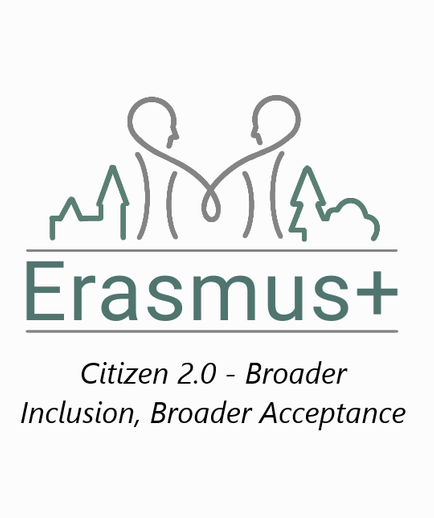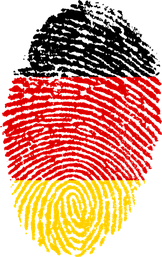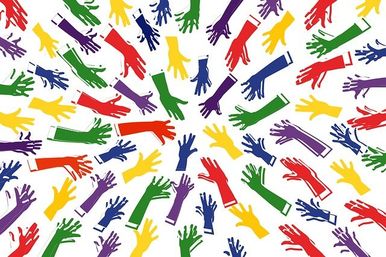Social inclusion, common values, civic engagement, participation
&
empowerment of young people
is what we aimed at.
Here's what we were able to achieve.
Our project outcome concerning ...
Students have changed in the way they learn in recent times, their social skills dramatically transformed with the development of the internet. We wanted to broaden the student’s scope by breaking out of the classroom and putting them in contact with different social groups like kindergarten and primary school pupils, elderly people and university students. We also wanted to raise their social awareness and their contribution to the broader society. We wanted them rise above the digital skills they have and to put them to use on a higher level. We furthermore wanted to deal with the challenges both students & teachers experience in a society that is changing rapidly.
Having completed this project, we had students from Belgium, Estonia, Germany, Hungary and Scotland from different abilities, backgrounds and experiences (rural vs. city, countries with different teaching methods, school systems, history, different ways of coping with learning disorders) meet and work together in an international context. Working across borders in mixed groups was quintessential to this project, as its very aim was to step away from classic teaching to a more project-oriented open space in which the teacher serves as a guide to help out the transnational groups in tackling different subjects and topics directly linked to the outcome of the project. We addressed issues & challenges the 21st century poses when it comes to matters of social inclusion, racism and ongoing changes in society. We put focus on the European added value & really stepped in and took matters in hand. In a society that puts the stress on individual success, we rediscovered the social aspect & the importance of responsible citizenship. Every country was chosen because of its relevance in the project and students had to travel to the different schools involved to investigate on site, as we were and still are of the firm conviction that social togetherness is only achievable via direct contact by meeting in person.
The project evolved around the topic of inclusion & diversity, following 3 key phases: research, action and outputs. Our main objectives were respect, solidarity, equal opportunities, diversity and responsible citizenship. As the first step, we addressed and dug into social skills (mutual understanding and acceptance, empathy, skills involving how to prevent and solve social conflicts) through integrating ethnic minorities into society. We understood which challenges different groups (e.g. refugees, ethnic minorities, kids, elderly) face in society, and what can be done to help resolve these challenges on the national level, local government level and school level. We also found good examples of how social inclusion has already had a positive outcome. For the second phase (action), we put the focus on hands-on-experiences (e.g. visiting the eastern part of Estonia where 90% of the population is of Russian origin or meeting refugees in Germany, teaching seminars to different social layers in society like kindergarten & primary school kids or the elderly), training new teaching methods and digital tools to the students involved so they were able to work with them and use them or involved the students in entrepreneurial and project-based workshops to train them for further education and later work life. In the third phase came up with very concrete outputs to address the topics that were under investigation. As our project’s focus involved social skills, social inclusion and integration on the one hand, as well as ICT, new technologies and digital competences on the other hand, we worked out educational material and workshops that will be used even after the end of the 3-year-project. This all linked with the set priorities of open education and innovative practices in a digital era and promoted the acquisition of skills and competences, as this has already proven to be highly relevant for everyone’s future.
The project has yielded lots of positive outcomes and results. Over the course of its implementation, several key achievements have been realized:
Cultural Awareness and Sensitivity: Through workshops, seminars, and interactive activities, the participating students gained a deeper understanding of different cultures, traditions, and perspectives. This newfound knowledge has fostered respect for diversity and reduced prejudice and bias among the participants.
Enhanced Social Cohesion: The project has played a pivotal role in strengthening social cohesion within the participating schools. By promoting respect and solidarity, it has facilitated greater collaboration and cooperation among diverse groups. This has translated into improved relationships, reduced conflicts, and a sense of unity among participants.
Equal Opportunities and Inclusivity: A significant achievement has been the creation of a more inclusive environment where equal opportunities are accessible to all. By raising awareness of discrimination and biases, our schools have improved policies and practices that ensure fairness and equality in education, employment, and various aspects of daily life.
Diverse Representation: The project has contributed to an increased awareness of diversity in decision-making bodies and communities. This has resulted in a more balanced representation of different groups, leading to more inclusive policies and strategies that benefit everyone.
Empowered Youth: In particular, the younger generation has been empowered to become active and responsible citizens. By instilling values of respect and solidarity, young people have become more engaged in community service, volunteering, and advocating for social justice issues.
Measurable Impact: The project's impact is not just anecdotal but measurable. Key indicators, such as reduced incidents of discrimination and increased civic participation, clearly demonstrate the effectiveness of the project in achieving its goals.
Long-Term Sustainability: Importantly, the project has set the foundation for long-term sustainability. It has fostered a culture of respect, solidarity, and responsible citizenship that is expected to endure beyond the project's timeline. Ongoing efforts and initiatives will continue to build on the project's successes.
Positive Social Change: Overall, the project has contributed to positive social change by creating more inclusive, harmonious, and equitable school communities. It has sparked conversations, raised awareness, and inspired individuals and affiliated organizations to actively work towards a fairer and more just society.
In conclusion, the project has achieved long-lasting outcomes and results. It has not only helped transform the mindset of individuals and institutions but has also paved the way for a more inclusive and equitable future where everyone can thrive regardless of their background or identity.



